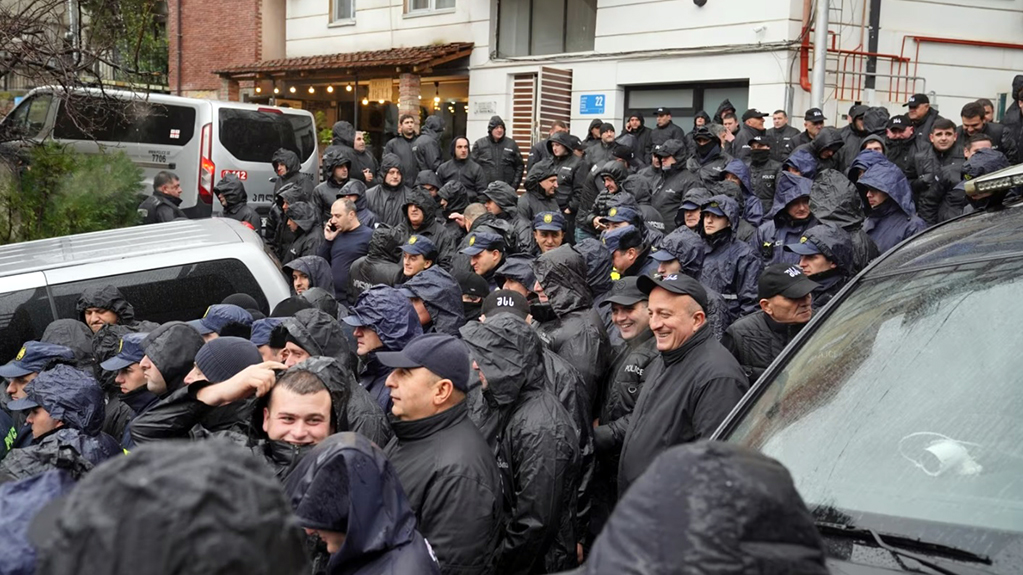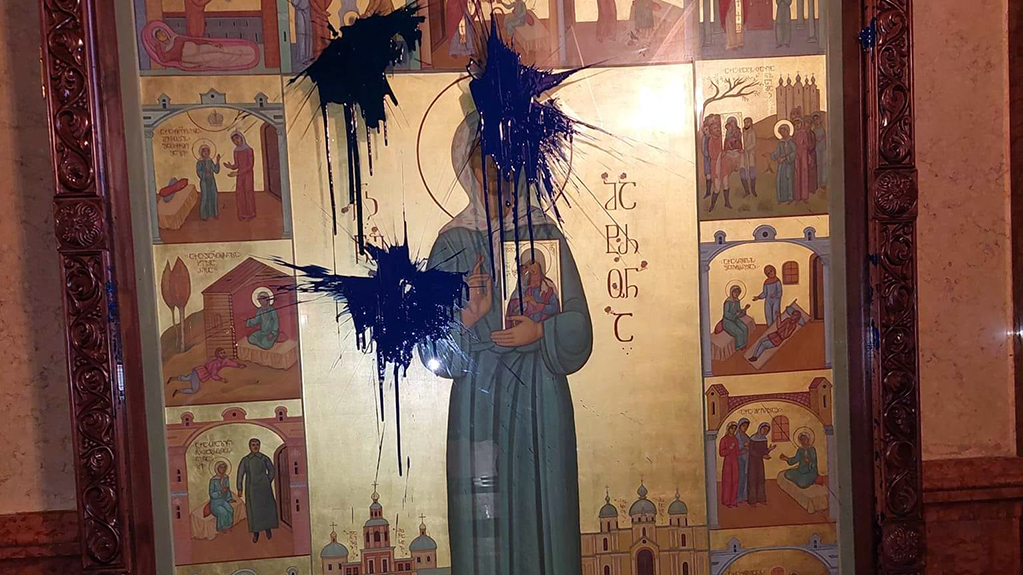After pouring paint on the icon of St. Matrona of Moscow, situated in the Holy Trinity Cathedral in Tbilisi, the ruling party Georgian Dream plans to tighten legislation. On January 9, the icon was vandalized with paint, as it features the depiction of the Soviet dictator Joseph Stalin.
News
According to Anri Okhanashvili, the chairman of the Legal Affairs Committee of the Parliament, the incident that occurred in the Trinity Cathedral is deemed unlawful and necessitates appropriate accountability. However, the existing legislation does not currently entail proportional responsibility for such actions.
“We have already commenced an in-depth examination of the mentioned issue. Our study will encompass the experiences of international, especially EU member states, the approaches of the Strasbourg Court, and we will seek consultations to initiate relevant legislative changes in the near future.
Moreover, based on preliminary research, we are aware that in numerous EU member states, actions such as insulting religious structures are subject to criminal law and may lead to imprisonment. Examples include Germany, Austria, Poland, Greece, Italy, etc.
“Therefore, our team will initiate legislative changes in the near future to enhance criminal responsibility for insulting religious buildings and articles. This applies to both Christian Orthodox and other religious structures, such as mosques, synagogues, Catholic, or other churches. Consequently, our objective is to prevent the desecration of religious temples and mitigate the risk of inciting religious conflicts within society,” Okhanashvili stated.
According to Tina Bokuchava, a member of parliament from the United National Movement party, Georgian Dream aims to exploit this issue for pre-election campaigns, intending to create division among citizens and promote violence.
On January 6, Dean Ilia Chigladze disseminated information regarding the presence of an icon featuring the image of Soviet dictator Joseph Stalin in the Trinity Cathedral. Later, the temple's priest, Archimandrite Iovane Mchedlishvili, clarified that the mentioned icon has been displayed in the Trinity Cathedral for months.
The General Secretary of the pro-Russian party Patriots Alliance, Irma Inashvili, confirmed that she and Davit Tarkhan-Mourav donated the icon of Matrona of Moscow to the Holy Trinity Cathedral.
According to Inashvili, the depiction of Stalin on the icon portrays him as a negative character: “Stalin is depicted with his back to the church, wearing an arrogant expression, but approaching the saint. This symbolizes that God is above any ungodly government and any ruler.”
On January 9, activist Nata Peradze released a video showing the icon of Matrona of Moscow smeared with blue paint. On the same day, the Ministry of Internal Affairs initiated proceedings under Article 166 of the Code of Administrative Offenses regarding the act of pouring paint on the icon, which pertains to petty hooliganism.
The representatives of the Patriarchate cleaned the icon of Matrona of Moscow and placed it in a more prominent place in the Trinity Cathedral.
At first, Nata Peradze faced threats on social networks, and on January 10, leaders and supporters of the pro-Russian, militant party Alt-Info/Conservative Movement gathered at the activist's residence. They accused Nata Feradze of tarnishing her image and called for her severe punishment. A significant police presence was mobilized near the activist's house.

On January 10, the Patriarchate of Georgia released a statement addressing the donors of the icon of Matrona Muscovelli, urging them to modify the depiction of the meeting with Stalin. The Patriarchate asserted that if the donor does not make this adjustment, they will take the initiative to do so.
In response to the Patriarchate's statement, Irma Inashvili expressed that they are requesting the iconographer to change the mentioned fragment. However, she emphasized that this does not imply forgiving someone for insulting the icon.















